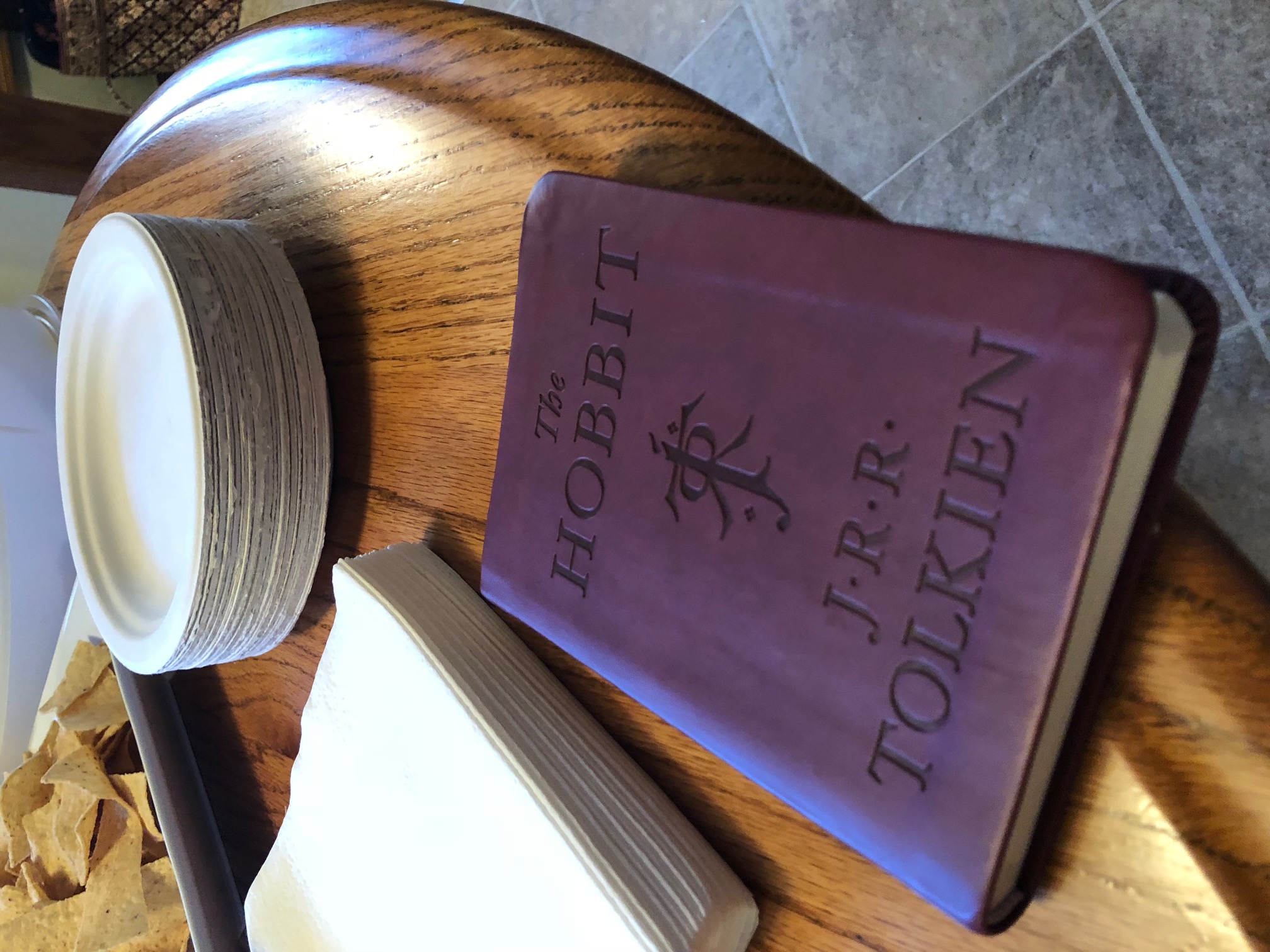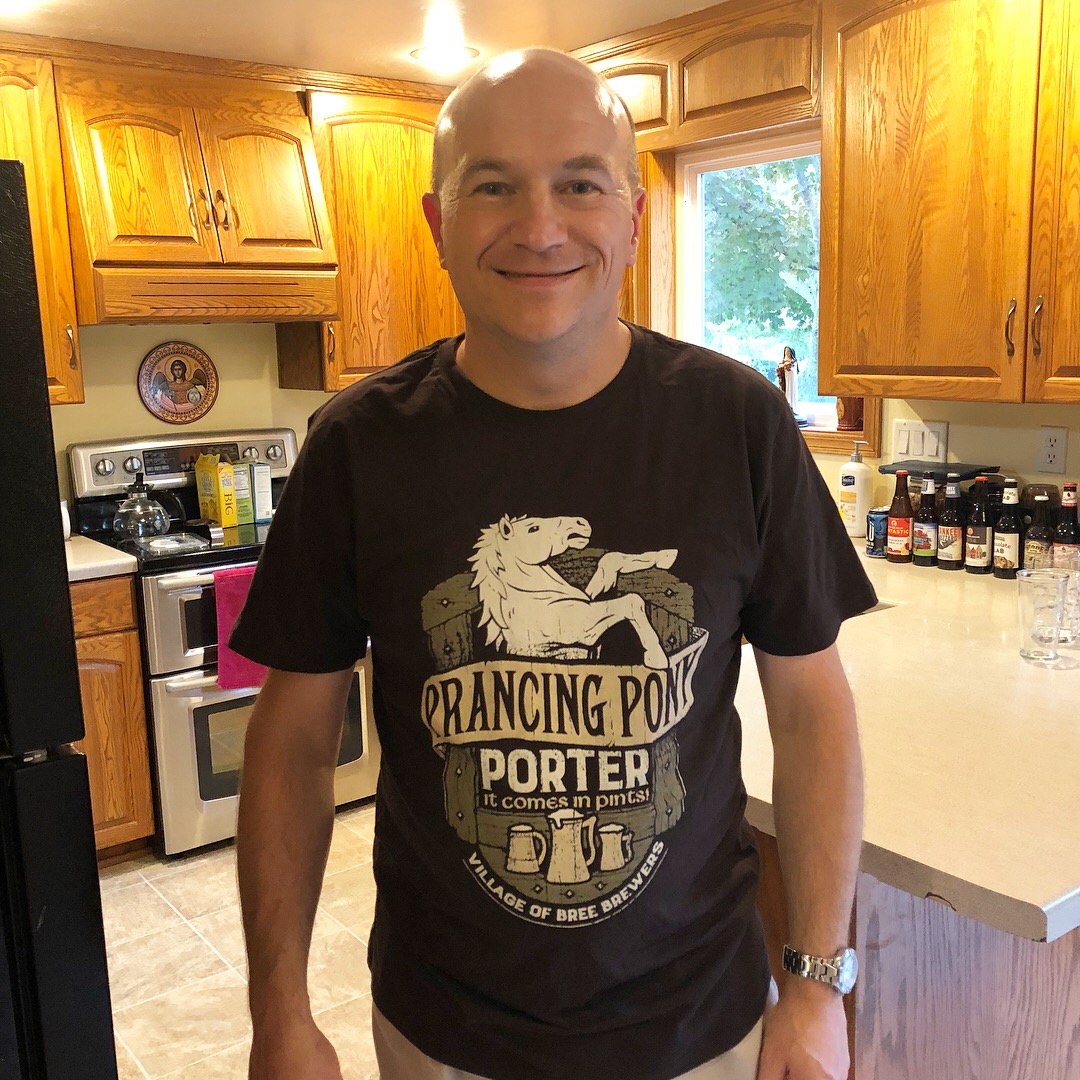I do not know what I did to get so blessed. In all likelihood, nothing. God knew what Greg and I needed, and He just asked us to obey His promptings and follow His lead. And, by His grace, He has led us into a Hobbit Club which can only be a gift from Him.

After a few hard years of pruning and cultivating our lives so that our home life and spiritual life are in greater balance, we are finding that we have greater clarity on how to interact with the world at large. We have struggled mightily under some burdens, but God has provided just the right amount of grace so that we can carry that load when it is right to do so and put down whatever in that load that is not really ours to carry. I do not mean to pretend for a moment that we have everything or even anything figured out. But, for reasons attributable only to grace, I think that we are coming into a place of resting in His will instead of railing against it.

About a year ago, Greg and I became serious about trying to live liturgically. Our Catholic Faith is a beautiful tapestry of grace communicated through many different threads woven together. The Church, in Her wisdom, has given us many of these threads of finest wool through the liturgical calendar. The feasts, fasts, and feria give our bodies a rhythm, our spirits an expression, and our worship an order. When I discovered that Tolkien allowed that same calendar to influence his story telling, I knew we had to make a bigger space for Middle Earth in our lives.
In August, we had our fourth Hobbit Club meeting. Our group now numbers in the mid-twenties and we are developing our own little subculture. When we see each other at church, in the store, or at some event, our conversation always drifts to Hobbit Club and we always explain ourselves with Middle Earth references. When, for example, describing a problem at work, we evaluate how hard the challenge is by whether or not it is like being in Mirkwood forest or just returning to the Shire to find Bag-end dismantled. As silly as that may sound, Tolkien has given us a common language and a form for our bond. Praise be to God that we can lean on each other, understand each other, and support each other because we can really hear each other. Dare I say it? I think that we are feeling something akin to what Tolkien and Lewis felt when they found friends who understood them because of their shared loved of mythology.
In our July meeting only the first half of The Hobbit had been assigned. For that meeting, we started with a simple question: Tolkien, a master of words, uses the word ‘thief’ to describe Bilbo. What does that mean? We kicked that idea around for two hours! The question was posed by the lawyer in the room. The deacon in the room (who is also a computer programmer) asserted that there had to be a clear binary answer – no nuance. The priest in the room argued that perhaps we were supposed to contemplate the good thief at Christ’s death. Our law enforcement officer friend was out of town but we suspected that he would argue about the legality of it all. And so on and so on. A simple question turned into a wonderful study of real life ethics and the central theme of the Gospel: forgiveness.

In our August meeting we covered more ground – the questions below were sent out in advance as possible conversation starters for our meeting. We did discuss many of them!

I cannot wait until our September meeting. Greg and I brewed some Dragon Eye Red Ale homebrew to share with our fellow hobbits.

Possible Discussion Questions for our August Hobbit Club
- How are Bilbo and Gollum alike?
- How is Beorn like Lewis’s Aslan?
- Isn’t it interesting that after their stay with Beorn, Gandalf tells the party that he will be leaving soon, very soon. Obviously this is like Christ’s comments to the Apostles. Why do Gandalf and Christ do this?
- In Mirkwood forest, the enchanted stream is cursed. And yet, it is compelling and attractive. Sin is like this. From where does it get its power to attract us? Why did the party fall victim to it anyway?
- When Gandalf leaves the party, a new leader emerges in the group. Discuss who and why.
- The ancient feud between the dwarves and elves seems to means something. If the elves are angel-like creatures and the dwarves are not demons, then why are they at war?
- Why does the Elvenking imprison the dwarves? Why won’t Thorin tell the Elvenking what his mission is? What characteristics does his refusal reveal about him? Do you think these characteristics are true for all dwarves, or are they just true for Thorin?
- Bilbo helps the dwarves to escape the Elven-King. How does this resonate with our discussion of burglary?
- As the party nears the mountain, Thorin seems to be changing. What is causing his dragon-sickness to be amplified in this way?
- Modern stories try to redeem dragons. Tolkien is very clear that the dragon archetype is totally evil. Who do you think is right? The moderns (My Father’s Dragon, How To Train Your Dragon, etc.) or Tolkien. Why?
- Bilbo gives the Arkenstone to Bard and the Elvenking. How does this connect with our conversation about burglary?
- Bilbo is pleased that he is “only quite a little fellow in a wide world after all!” (p. 305). Why is this a comforting perspective? How does viewing oneself as a small part of a larger whole impact the way a person interacts with the world around him?
One Comment
Comments are closed.